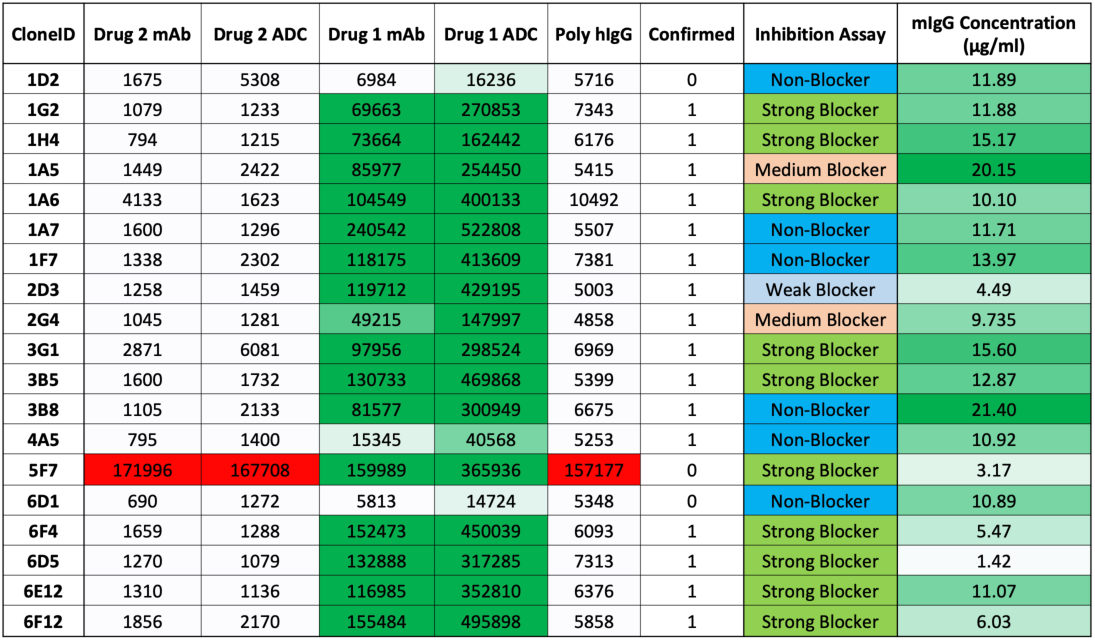Overview
Anti-idiotypic antibodies (anti-IDs) recognize the unique variable region of another antibody called the idiotype (defined below). Anti-IDs are commonly used in bioanalytical assays to monitor pharmacokinetics (PK) and the immunogenicity of therapeutic antibodies in animal models and human clinical trials. A typical bioanalytical assay requires a complementary pair of anti-IDs that bind to unique epitopes on the therapeutic antibody.
For example, in a total antibody serum assay, the first anti-ID functions to “capture” the therapeutic antibody from a dilute serum sample and the second, reporter-conjugated anti-ID, “detects” the amount of therapeutic antibody that has been captured. Traditional workflows for discovering anti-IDs have relied on multiple rounds of ELISA assays for kinetics and epitope binning which can be labor and reagent intensive, thereby limiting the number of candidates that can be investigated. This study aims to streamline the discovery of anti-IDs by combining digital surface plasmon resonance (SPR) and high throughput flow cytometry to efficiently screen thousands of anti-ID candidates, ultimately identifying high-performance pairs for bioanalytical assays.
